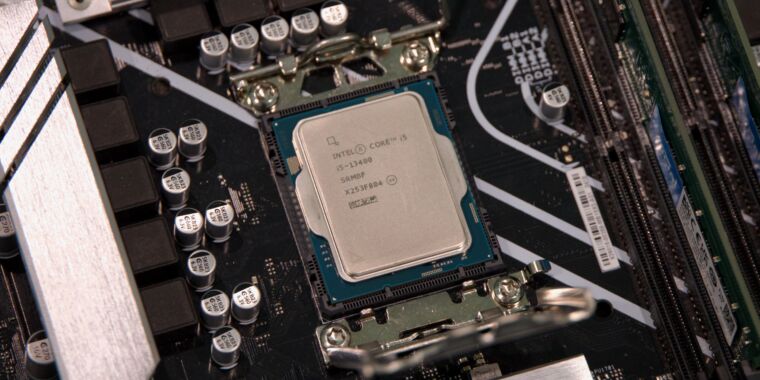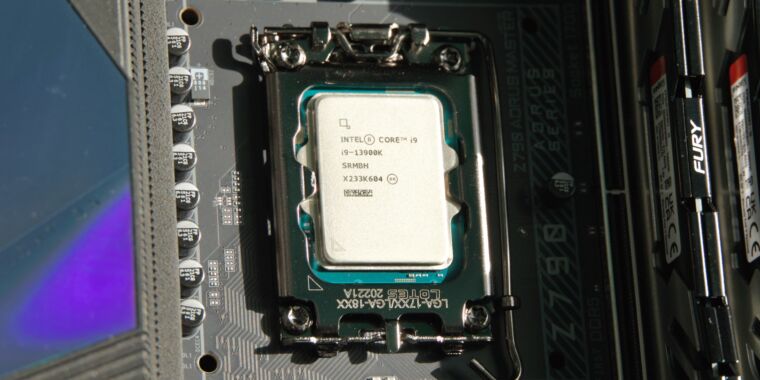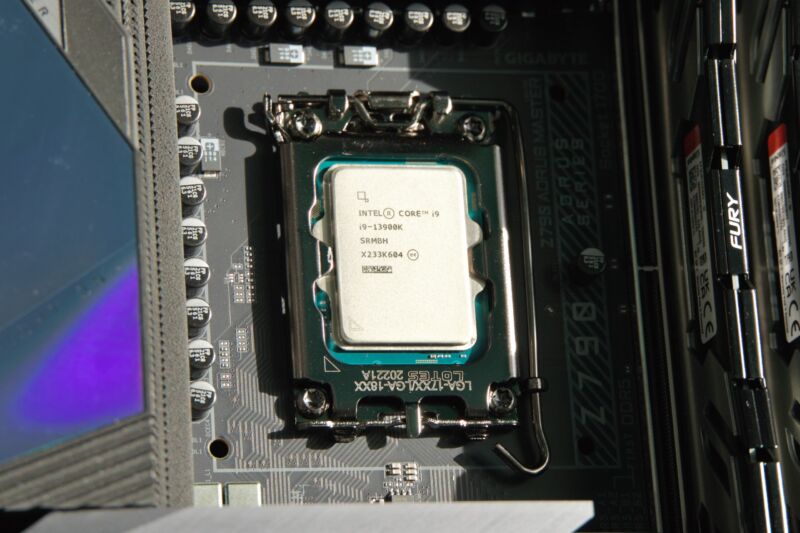Intel is offering extended warranties for crashing 13th- and 14th-gen desktop CPUs
trying to make good —
Intel’s microcode fix won’t help CPUs that are already damaged.

Enlarge / Even mainstream CPUs like the Core i5-13400 could theoretically be affected by Intel’s crashing issues.
Andrew Cunningham
Intel will be releasing a microcode update to prevent further damage to crashing 13th- and 14th-generation desktop processors sometime this month if it can stick to its previously announced schedule. This fix should be available via BIOS updates from PC and motherboard makers and from Microsoft as a Windows update. But it will take time for those updates to roll out to users, and Intel has said that processors that are already exhibiting crashes have been permanently damaged and won’t be fixed by the microcode update.
In an effort to provide peace of mind to buyers and cover anyone whose CPU is subtly damaged but not showing explicit signs of instability, Intel is extending the warranty on all affected 13th- and 14th-generation CPUs by an additional two years, Tom’s Hardware reports. This raises the warranty on a new boxed Intel CPU from three years to five. For processors that came installed in pre-built PCs, Intel says users should reach out to their PC’s manufacturer for support instead.
Though owners of high-end chips like the Core i9-13900K and Core i9-14900K were the most frequently affected by the crashing issue, Intel says that any 13th- or 14th-generation desktop CPU with a base power of 65 W or higher could ultimately be affected. This means that even slower, more budget-oriented chips like the Core i5-13400 could end up having problems.
According to Intel, the root cause of the issue was “a microcode algorithm resulting in incorrect voltage requests to the processor,” a bug that caused motherboards to supply too much power to a CPU. This resulted in damage to the silicon over time, leading to crashing and instability. The problem was also exacerbated by enthusiast motherboards that didn’t stick to Intel’s recommended default power and performance settings.
Intel says it is “investigating options to easily identify affected processors” to help give users peace of mind, and it will have more to share on both these testing options and the details of the extended warranty “in the coming days.” Anyone experiencing problems should reach out to Intel or their PC’s manufacturer, depending on whether they bought a separate CPU or a complete system.
Intel is offering extended warranties for crashing 13th- and 14th-gen desktop CPUs Read More »


